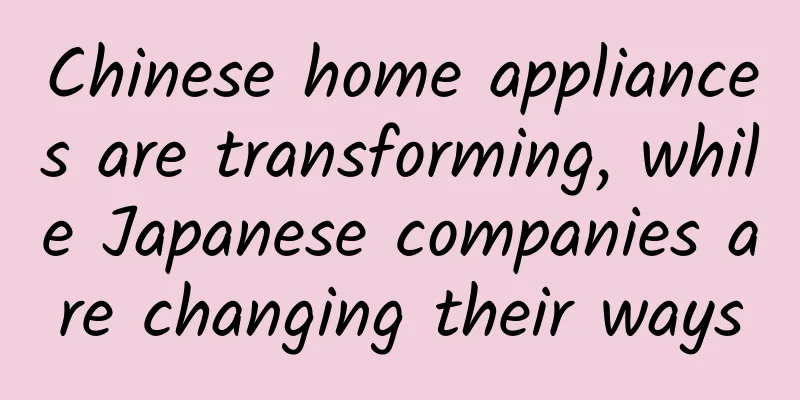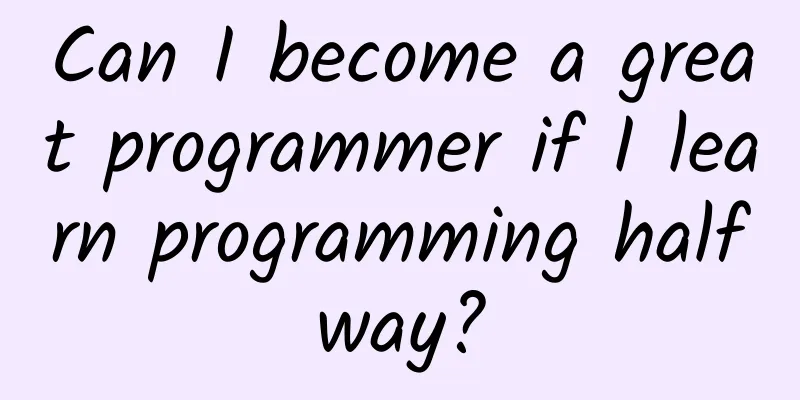This wave of "childish talk" really made me laugh to death, but why are childish talk so funny?

|
As the saying goes, "children speak without restraint." Human cubs can always say things that adults would never think of, easily breaking through the limitations of adults' thinking, such as: How do they do this? Today we will use developmental psychology to talk about the characteristics of children's thinking behind "children's words are free of charge". 01 In the eyes of children: Everything is alive In the eyes of children, everything has life. Why? Because the world is easier for them to understand. Understanding the world requires senses and abstract thinking. Senses can help us understand concrete things, that is, things that can be seen with eyes, touched with hands, heard with ears, tasted with mouth, and smelled with nose, such as apples, photos, the sound of fountain water, and the smell of cake. But for abstract things, that is, things that cannot be touched or seen, such as conscience, honesty, and logic, we have to rely on abstract thinking. Abstract logical thinking is a high-level thinking ability. Cognitive psychologists believe that children can only be said to have preliminary abstract logical thinking ability after they are 11 or 12 years old . For preschoolers, the means they can use to understand the world are even more limited. They can basically rely on their own senses, which means they can only understand what their senses can experience. However, they cannot understand things that cannot be touched or seen in reality because this requires abstract understanding ability. For example, a person who has just died looks very similar to a person who is asleep, but a child can understand "he is asleep" but cannot understand "he is dead". Being asleep is concrete and can be experienced, while death is abstract and cannot be experienced, so children cannot understand such an abstract concept as death. In this case, seeing other things as living beings like oneself makes the world easier to understand. In the eyes of the cute baby, how he feels, other things will also feel the same way, so the world is easy to predict and grasp. So, if a little kid asks you, "Does the table have legs?", you might think, "Don't you see that the table has legs?" But the kid is thinking, "Why doesn't it walk?" 02 Children are best at judging others by their own standards. As adults, we can all consciously or unconsciously imagine what we would see and what conclusions we would draw if we were in someone else's shoes. This kind of mental activity is frequent and natural for adults or older children, so frequent and natural that we often don't even realize it. So we take it for granted that other people do it. But in fact, this ability is very advanced and not innate. When children are young, this ability is very poor. They can often only see the world from their own perspective and find it difficult to think from the perspective of others , just like the child above who asked the teacher to talk about his dream. It can be said that children are self-centered, but this is not the selfishness in the adult world, but a way of understanding the world caused by immature cognitive abilities. This difference in ability between adults and children often produces comic effects. A father suffered a loss because he did not understand his child's way of thinking. He wanted to tease his child by slapping his face with his hand and saying "hit yourself" to the child, hoping that the child would imitate him. But in the end, the child slapped his father in the face and then laughed. This father doesn’t know that the child needs to think from his father’s perspective, “You hit yourself like I do,” in order to do as he expects, but the child only thinks from his own perspective, “Dad lets me hit him like he does.” 03 Children don’t know that thoughts are secret. Children's honesty always surprises adults. Why don't children keep the truth to themselves even if it offends others? Children under the age of three or four do not know that their thoughts are private and think that everyone knows the same information . They do not know that people have different thoughts and that different people may have different thoughts about the same thing. They think that others know what they are thinking even if they don't say it, so they never lie. Even if they learn to lie after the age of three or four, children's ability to guess the inner intentions and purposes of others still needs to be continuously improved. During this process, children will say many things that adults would not expect, just like the three-year-old girl at the beginning who thought that her father told her about his childhood hunger in order to explain why he came to their house for dinner. 04 Children have no prejudice There is a similar story: A father was playing with his child. The father stuck a small shovel into the soil and said to the child: "I'll stick it in, you pull it out." The child tried to pull it out but couldn't. The father said: "Shake it, it will be easier to pull out if it is loose." The child looked at his father, then stood up and began to shake himself. Our ability to accurately deal with various daily affairs in life is due to the brain's ability to generate a lot of "implicit knowledge". Implicit knowledge is the knowledge that you take for granted. For example, when we hear the father say "shake it first", we know without thinking that he means to shake the shovel we are talking about, not ourselves. In fact, as we grow up, we have generated many scripts to support our daily lives, such as what to do when meeting strangers, friends, and teachers, how to buy things in a supermarket, what to do first and what to do after eating in a restaurant, etc. These scripts are our implicit knowledge, which helps us make the right choices "automatically" but we ourselves are not aware that we have made the choices. But children have not yet formed these scripts, so they have to rely on very limited life experience to make choices, which naturally leads to a lot of jokes. In addition to the above characteristics, children's understanding of the world is very different from that of adults, and their expressions can make adults laugh, such as: The mother asked the child: "Is it better to be big or small?" The child said: "Big is better." The mother asked again: "When you grow up, will you be a big bad guy or a small bad guy?" The child said: "A big bad guy." Children's thinking is black and white. In their eyes, things can only be divided into two extremes . Therefore, they are like dogmatists, often maintaining an extreme rule, and do not understand the compromise and change in reality. Children's innocent words bring us joy and remind us that children are not little adults. We cannot judge children with the views and ideas of adults, and we must not force them to grow. Let us appreciate these innocence and fun while waiting for the flowers to bloom. Author: Wang Lin, Master of Education from the University of Tennessee, USA, majoring in Child and Family Studies Review | Tang Yicheng, Deputy Director of Beijing Zhongke Popular Psychological Health Promotion Center |
Recommend
Google advertising promotion, how to position Google display ads?
Everyone knows that Google search ads are directl...
Zibo Mini Program Development Company, how much does it cost to develop a fresh fruit and vegetable delivery mini program?
How much is the price for developing a mini progr...
"Are you sure?" Ningbo man diagnosed with breast cancer! This disease is not exclusive to women...
Do you think breast cancer is a disease only for ...
"Fighting fire with fire" space combustion experiment - Why is fire in space so exciting?
In February this year, the Combustion Science Exp...
Why is the Honor 9X series so priced so brutally?
On July 23, Honor released the new Honor 9X serie...
More than 60 tools for event operation and promotion, a must-have!
To organize a good event, it often goes through t...
Looking at Changyu, Moutai and Wuliangye from the perspective of "wine to protect liver"
I just saw an article analyzing Changyu, pointing...
How to study at the beginning of the school year? Follow the aerospace scientists!
The new semester has begun. Are you ready to meet...
WeChat responds to the central media’s comments on reading users’ photo albums: How much more “peeking” is going on that we don’t know about?
Recently, Tencent WeChat was exposed for repeated...
A “guide” to wasting money on advertising: How to spend 100 yuan like 1 yuan?
There is a famous saying in the advertising indus...
Understanding Low Code in One Article
Part 01 Low-Code Overview In 2014, Forrester prop...
Can dogs sniff out cancer patients as accurately as they can detect drugs and bombs?
Produced by: Science Popularization China Author:...
When buying a mobile phone in 2021, don’t believe the boss’s “jargon”! If you are fooled again, you will lose a lot
Novices often encounter misunderstandings when bu...
The whole process of commercial live streaming monetization on Douyin (updated)
Live streaming is currently the most direct and b...
Sweating = detoxification and beauty? There is a kind of sweating that is very fatal. Knowing it earlier can save lives!
Hot! Hot! Hot! This year, hot and humid weather h...









